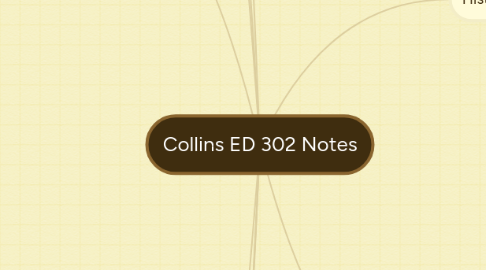
1. Educational Reform
2. Educational Inequality
3. Equality and Opportunity
4. Philosophy of Education
4.1. Realism
4.1.1. essentialism
4.1.2. teacher led
4.1.3. traditional
4.1.4. back to basics
4.1.5. direct instruction
4.1.6. orderly classroom environment
4.1.7. theorists
4.1.7.1. William
4.1.8. syllogism
4.1.9. empirical points of view
4.1.10. tabula rasa
4.2. Idealism
4.2.1. Perennialism
4.2.2. Teacher led
4.2.3. focus on classic literature
4.2.4. shuns textbooks
4.2.5. no electives
4.3. Pragmatism
4.3.1. progressivism
4.3.2. student led
4.3.3. inquiry method of learning
4.3.4. group/ collaborative learning
4.3.5. learning by doing
4.3.6. project based learning
4.3.7. theorists
4.3.7.1. Jonh Dewey
4.3.7.2. Nel Noddings
4.3.8. teacher is facilitator
4.4. Existentralism
4.4.1. Student led
4.4.2. students grade and evaluate themselves
4.4.3. shuns traditional curriculum
4.4.4. individuality and introspection
4.5. Neo-Marxism
4.5.1. social reconstruction
4.5.2. student led
4.5.3. focus to better society
4.5.4. flexible and integrated curriculum
4.5.5. social awareness
4.5.6. creates problem solvers
5. Schools as Organiztions
5.1. powerful organizations
5.1.1. worldly interest groups compete with each other in terms of ideology, finances, and power.
5.2. school processes
5.2.1. refer to the way school cultures are created and maintained.
5.3. decentralized school system
5.3.1. each state maintains its autonomy, authority, and responsibility regarding education.
5.3.2. little federal government involvement
5.3.3. US schools
5.4. consolidation and centralization of schools
5.4.1. past 80yrs schools have consolidated
5.4.1.1. education is more efficiend and cost effective
5.4.2. Great Britain
5.4.2.1. five stages of education
5.4.2.1.1. early years
5.4.2.1.2. primary
5.4.2.1.3. secondary
5.4.2.1.4. further education
5.4.2.1.5. higher education
5.4.3. France
5.4.3.1. government controls all the way to the individual classroom
5.4.3.2. two public school systems
5.4.3.2.1. ordinary citizens
5.4.3.2.2. elite society
5.5. racial segregation is happening de facto rather than de jure
5.5.1. de facto is in fact
5.5.2. de jure is by law
5.6. school culture
5.6.1. schools have definite...
5.6.1.1. population
5.6.1.2. political structure
5.6.1.3. network of social relationships
5.6.1.4. "we" ideal rather than a "me" ideal
5.7. Max Weber
5.7.1. sociologist who asserted that schools are social organizations that are bureaucratic in nature.
5.7.2. bureaucracies are and endeavor to organize human behavior in order to achieve specific goals.
5.8. No child left behind act
5.8.1. mandates teachers must be highly qualified
5.8.1.1. college degree
5.8.1.2. full certification in field of study
5.8.1.3. knowledge of academic content in field of study
5.9. double schooling
5.9.1. japan
5.9.1.1. benchmark for educational effectiveness
5.9.2. traditional public schools
5.9.3. informal schools called juku
5.10. Germany
5.10.1. sorts children at young age and tracks them into 3 part system of secondary education.
5.10.1.1. blue collar
5.10.1.1.1. service position
5.10.1.2. lower level whit collar position
5.10.1.3. academic preparation
5.10.1.3.1. high level professions
5.11. finland
5.11.1. highly praised for superior education.
5.11.1.1. high test scores
5.11.1.2. emphasis on formative assessment rather that standardized tests
5.11.1.3. elimination of tracking
5.11.1.4. focus on all students achieving a high level of academic success
5.11.1.5. rigorous teacher education programs
6. Curriculum and Pedagogy
7. Foundations of Education
7.1. 4 issues in education
7.1.1. Poverty in schools
7.1.1.1. equal oppertunities
7.1.2. Reduction in literacy
7.1.2.1. Socio-economic status
7.1.3. Assessment issues
7.1.3.1. social class
7.1.4. school funding
7.1.4.1. staffing
8. Politics of Education
8.1. Conservative
8.1.1. Traditional
8.1.1.1. Social darwinism
8.1.1.2. individual initiative
8.1.1.3. hard work
8.1.2. positive fiew os us society
8.2. Liberal
8.2.1. Progressivism
8.2.2. Equality
8.2.3. positive views with some reservation
8.3. Radical
8.3.1. capitalist
8.3.2. negative towards us society
8.4. Neo-Liberal
8.4.1. combination of converative and liberal
8.4.2. critiques failing traditional schools to unions, tenure, etc.
9. History of U.S. Education
9.1. 1635 Boston Latin Grammer School established
9.2. 1636 Harvard College established
9.3. Benjamin Franklin
9.3.1. secular/utillitarian studies rather than traditional
9.3.2. 1751 Franklin Academy opened in Philadelphia
9.4. Thomas Jefferson
9.4.1. implemented free education for the first 3 years of elementary education
9.4.1.1. to safeguard literacy
9.5. 1783 Noah Webster's American Spelling book was published.
9.5.1. precursor to websters dictionary
9.6. 1785, 1787 Land Ordinance Act, Northwest Ordinance
9.6.1. Required every town to have school and to be funded by property taxes.
9.7. Horace Mann
9.7.1. Normal schools
9.8. Kalamazoo case
9.8.1. established the use of taxes to fund public schools
9.9. Plessy v. Ferguson
9.9.1. separate but equal
9.9.2. 1896
10. Sociological Perspectives
10.1. Functional Theories
10.1.1. assess the interdependence of the social system
10.1.2. viewing society as a machine where one part works with another to make society work.
10.1.3. interprets each part of society in terms of how it contributes to the stability of the whole society.
10.2. Interactional Theories
10.2.1. take a up close view of the interactions between students/ students and teachers/ teachers.
10.3. Conflict Theories
10.3.1. assert that societyis held together by shared values alone, but on the ability of dominant groups to impose their will on subordinate groups
10.3.2. Marxist-based social theory which argues that social classes within society have differing amounts of material and non-material resources. ( i.e. wealthy vs. poor)
